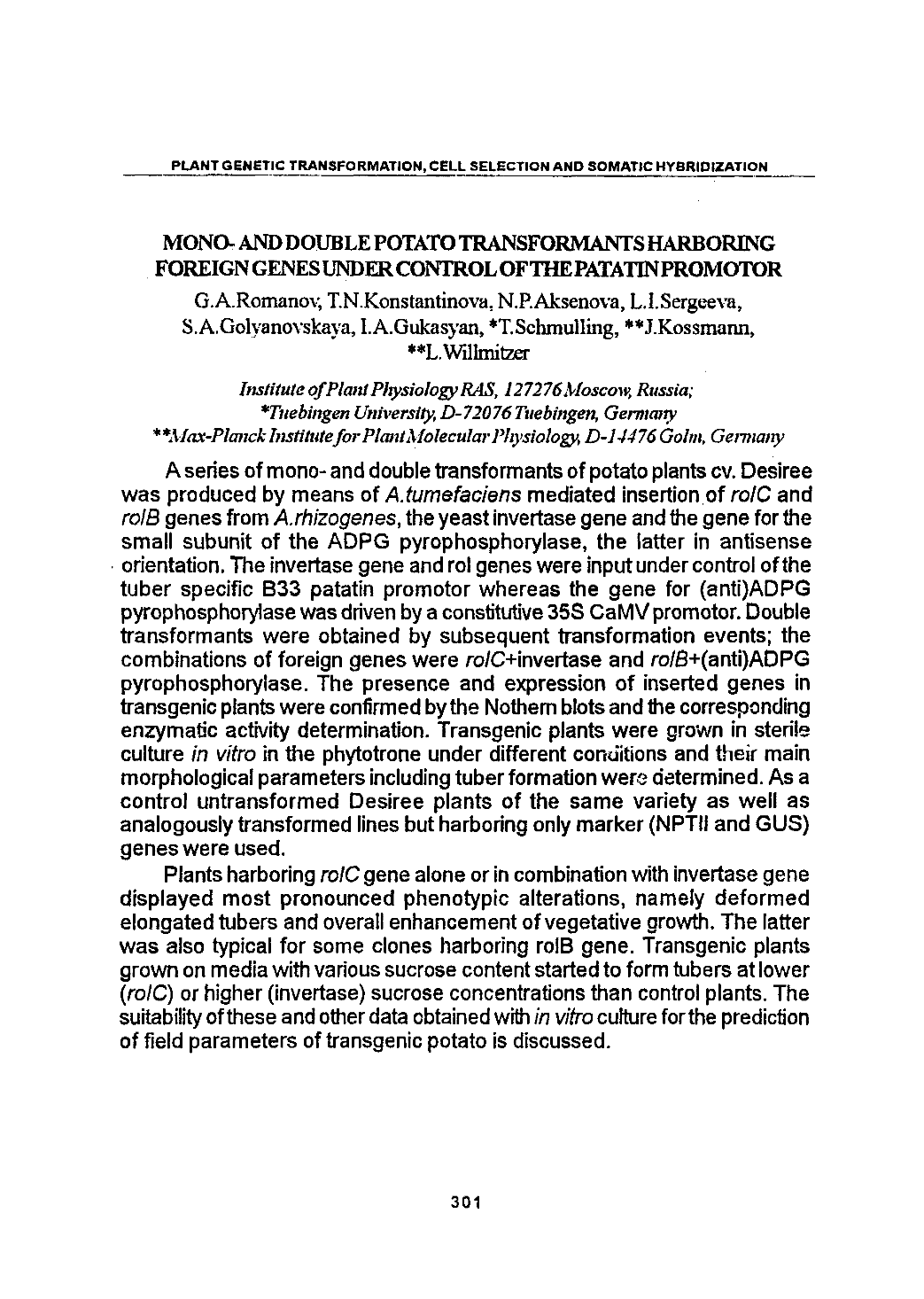

PLANT GENETIC TRANSFORMATION, CELL SELECTION AND SOMATIC HYBRIDIZATION
MONO- ANDDOUBLE POTATOTRANSFORMANTSHARBORING
FOREIGNGENESUNDERCONTROLOFTHEPATATINPROMOTOR
G.A.Romanov, T.N.Konstantinova, N.P.Aksenova, L.I.Sergeeva,
S.A.Golyanovskaya, I.A.Gukasyan, *T.Schmulling, **J.Kossmann,
**L.Willmitzer
Institute ofPlantPhysiologyRAS, 127276Moscow, Russia;
*Tuebingen University, D-72076 Tuebingen, Ger m any
**Max-P1anckInstitute forPlantMolecularPhysiology, D-14476 Golm, Germany
A series of mono- and double transformants of potato plants cv. Desiree
was produced by means of
A.tumefaciens
mediated insertion of
rolC
and
rolB
genes from
A. rhizogenes
, the yeast invertase gene and the gene for the
small subunit of the ADPG pyrophosphorylase, the latter in antisense
orientation. The invertase gene and rol genes were input under control of the
tuber specific B33 patatin promotor whereas the gene for (anti)ADPG
pyrophosphorylase was driven by a constitutive 35S CaMV promotor. Double
transformants were obtained by subsequent transformation events; the
combinations of foreign genes were rolC+invertase and rolB+(anti)ADPG
pyrophosphorylase. The presence and expression of inserted genes in
transgenic plants were confirmed by the Nothern blots and the corresponding
enzymatic activity determination. Transgenic plants were grown in sterile
culture
in vitro
in the phytotrone under different conditions and their main
morphological parameters including tuber formation were determined. As a
control untransformed Desiree plants of the same variety as well as
analogously transformed lines but harboring only marker (NPTII and GUS)
genes were used.
Plants harboring
rolC
gene alone or in combination with invertase gene
displayed most pronounced phenotypic alterations, namely deformed
elongated tubers and overall enhancement of vegetative growth. The latter
was also typical for some clones harboring rolB gene. Transgenic plants
grown on media with various sucrose content started to form tubers at lower
(rolC)
or higher (invertase) sucrose concentrations than control plants. The
suitability of these and other data obtained with
in vitro
culture for the prediction
of field parameters of transgenic potato is discussed.
301
Научная электронная библиотека ЦНСХБ









